Question
Here’s another question from my photographer/writer friend that should be of interest to all of us artists and writers:
Question:
I have a hard time convincing myself that magazine, newspaper, book publishers would be interested in what I have to write. I have no training in photography, nor in writing/journalism. While I think this lack of training is one of my biggest strengths, I know it hinders me as well.
Answer:
This is an intriguing question. I hope what you mean by a lack of training being one of your biggest strengths, that you mean that no one has squelched your gut force—that part of you that knows instinctively what to photograph, or paint, or sing, or write. And it is true that we sometimes have to unlearn a lot of what we learn. I think it’s part of the process. You try something and it doesn’t work and you go back to what you were doing. 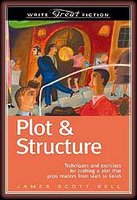
I also like for my students to stay tuned to their creative side, turning off the editor while doing so. I had to get away from my computer for a year in order to turn off the persistent editor enough to create something worth reading. Now it’s pretty well balanced out.
You say you have no training, but I see that you do. You may have taught yourself, but you took the time and effort to do so…that is valid training! As for your photography, you use your camera well, and I suspect you’ve read some magazines or books about photography. I know you’ve talked with others about both photography and writing, because that’s how you and I got connected in the first place. That’s training!
A lot of creative people who either don’t have the time or money for a formal education; often feel left behind because of a lack of training. That simply isn’t so. Most published writers I know don’t have a degree at all, let alone one in journalism. Most of us, including myself, get our training from a hands-on approach as follows:
1. Read! That is one of the best ways to learn to write. Observe and study the masters! Is one of the best ways to learn to draw or paint. Listen to compelling music! Is one of the best ways to learn to play an instrument or sing. 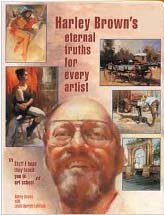
There are some great sites on my links to do this very thing!
I find myself drawn to the kinds of writing and painting and photography and music that I want to do. It’s very stimulating.
2. Doing the craft is another great way to improve. The more you write, draw, paint, play, sing…the better you become. Try some of the exercises I’ve had in past posts. I’ll also have some fun ones in future posts.
3. Read good references books and magazines on your chosen subject. My shelves are full of awesome books.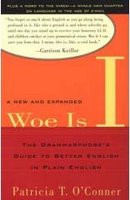
If you want to write and you don’t want to spend a lot of time on grammar, “Woe is I,”by Patricia T. O’Conner. It is a wonderful reference book. It’s written with a sense of humor but is packed full of helpful advice that is easy to find when you need it.
If you want to write fiction, I recommend, “Self Editing for Fiction Writers,”by Renni Browne and Dave King, and another must-have book is, “Plot and Structure.”
If you want to draw, I like Nicolaides, “The Natural Way to Draw.”
If you want to paint, I absolutely love “Harley Brown’s eternal truths for every artist.”
How about you bloggers? What are some of your favorite resource books? Let us know in the comment section.
4. Attend a conference! Whether it is a one-day or a week-long, a conference can do wonders to help you develop your craft, connect with other like-minded people, and come away inspired. Most conferences cover many aspects of the creative life including spiritual, life and craft, how-to, marketing, the business end, and other specialties.
Here are two that I will be teaching at this year:
Colorado Christian Writers
Oregon Christian Writers
5. Take a correspondence course! I started out by taking the Nonfiction Article Writing Course through Writers Digest. It was just what I needed to get a jump start on becoming a published writer.
6. Join a club or critique group! Being a member with other like-minded artisans will keep you motivated and help you grow in your craft. Members usually play off one another’s gifts, so each member ends up achieving a higher goal than they would have on their own. Sometimes it takes a while to find a group that works for you. Don’t expect your first meeting to feel as comfortable as your third. If it’s not happening by the fourth, then you should probably look somewhere else.
7. Make a lunch date with someone who is successful at what you want to do. Pick their brain.
8. Read interviews about the people you admire. See how they did it. What obstacles did they overcome? How can you relate? When I read Steven King’s book, “On Writing,” I came away totally jazzed, because finally I found someone who said it was okay to write the way I write. If it works for Steven King, then it must be okay for me!
Infuze Magazine has lots of good interviews. So does Novel Journey.
9. Take a class at a local college. I teach “Writing for Publicaton,” at Pacific Bible College and a majority of our students go on to become published writers. Look for a teacher that works well with you. I try very hard not to change my student’s writing voice and style, while teaching them to become better at what they do. One of my biggest joys is that my students don’t all sound like me. 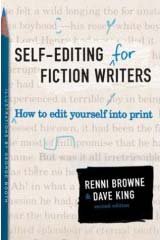
It’s the same in my art class. I love my teacher! Karen Cain-Smith is wonderful! I’ve taken classes from her for several years, as have many other students, and none of us paint the same. We each have our own styles.
10. Go ahead. Get that degree if you really want. But don’t become so in love with big words that you begin to sound stiff and academic.
My pastor has a doctorate and he’s going for something even higher than that (I didn’t even know there was something higher). He proudly informed me recently that his humongous paper was zero percent passive. Hooray! You don’t have to be stiff to write a good academic paper, and even preachers are better if they stay away from preachy language.
There are good schools and bad schools; good teachers and not so good teachers. The problem is more in the choice of training rather than whether or not to receive training.


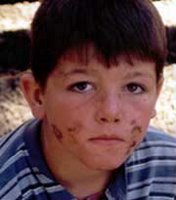




0 Comments:
Post a Comment
<< Home